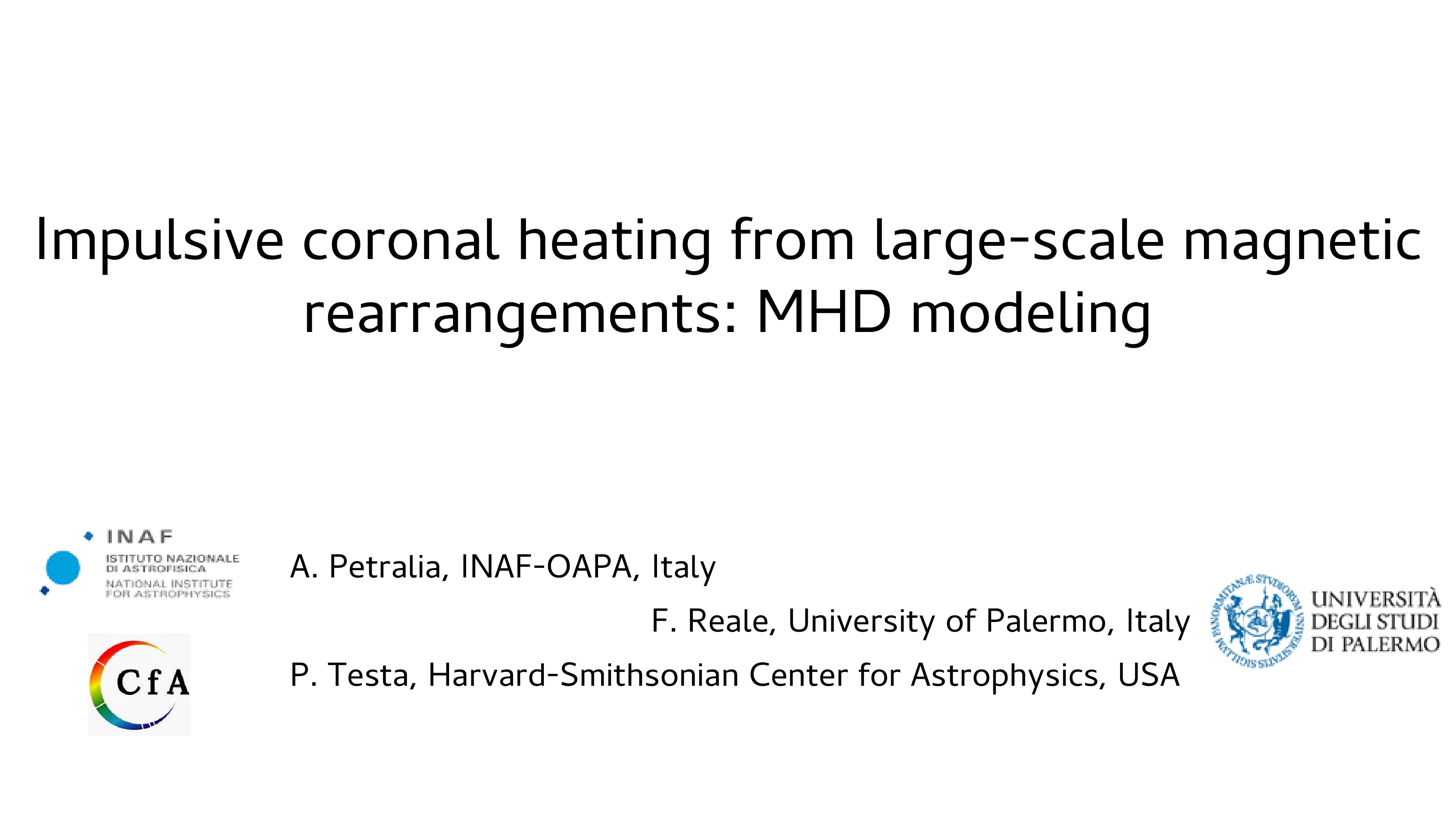Impulsive coronal heating from large-scale magnetic rearrangements: MHD modeling
Main category
Natural Sciences (Astrophysics and Astrononmy)
Abstract
IRIS has observed bright spots at the transition region footpoints. These spots showed significant blueshifts in the Si IV line at 1402.77 A (T∼104.9K). Such blueshifts could not be reproduced by coronal loop models assuming heating by thermal conduction only, but were consistent with electron beam heating, highlighting for the first time the possible importance of non-thermal electrons in the heating of non-flaring active regions (Testa et al. 2014, Science). The coronal counterparts of these brightenings ob-served in the hot channels of the Imaging Atmospheric Assembly on board the Solar Dynamics Observatory show that the IRIS bright spots are the footpoints of very hot and transient coronal loops which clearly experience strong magnetic rearrangements (Reale et al., this meeting). Here we explore in detail how these hot loops might be produced through numerical 3D MHD modeling of interacting magnetic structures including the full plasma chromospheric and coronal response.
Do you have problems viewing the pdf-file? Download presentation
here
If the presentation contains inappropriate content, please
report the presentation. You will be redirected to the landing page.
